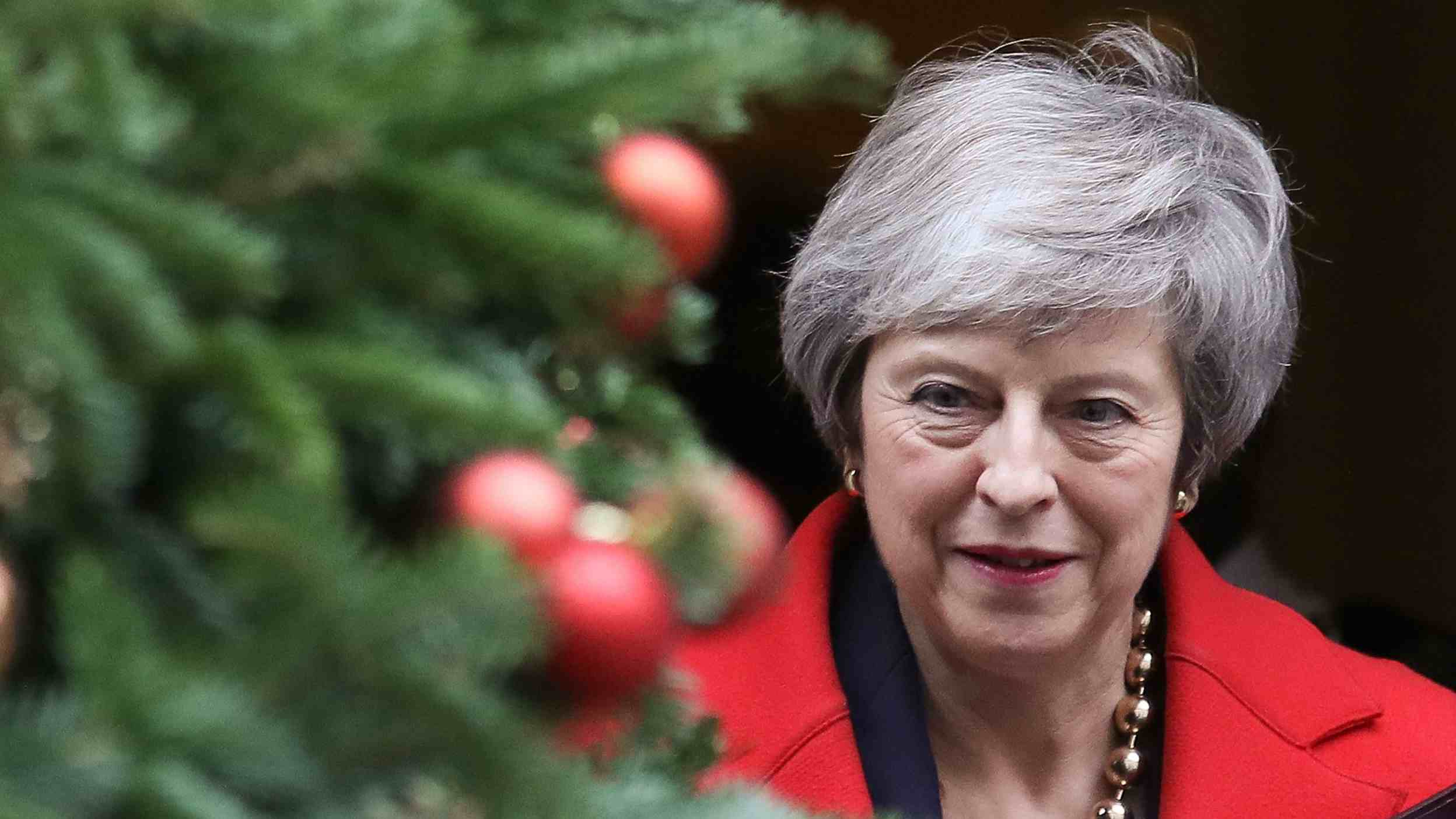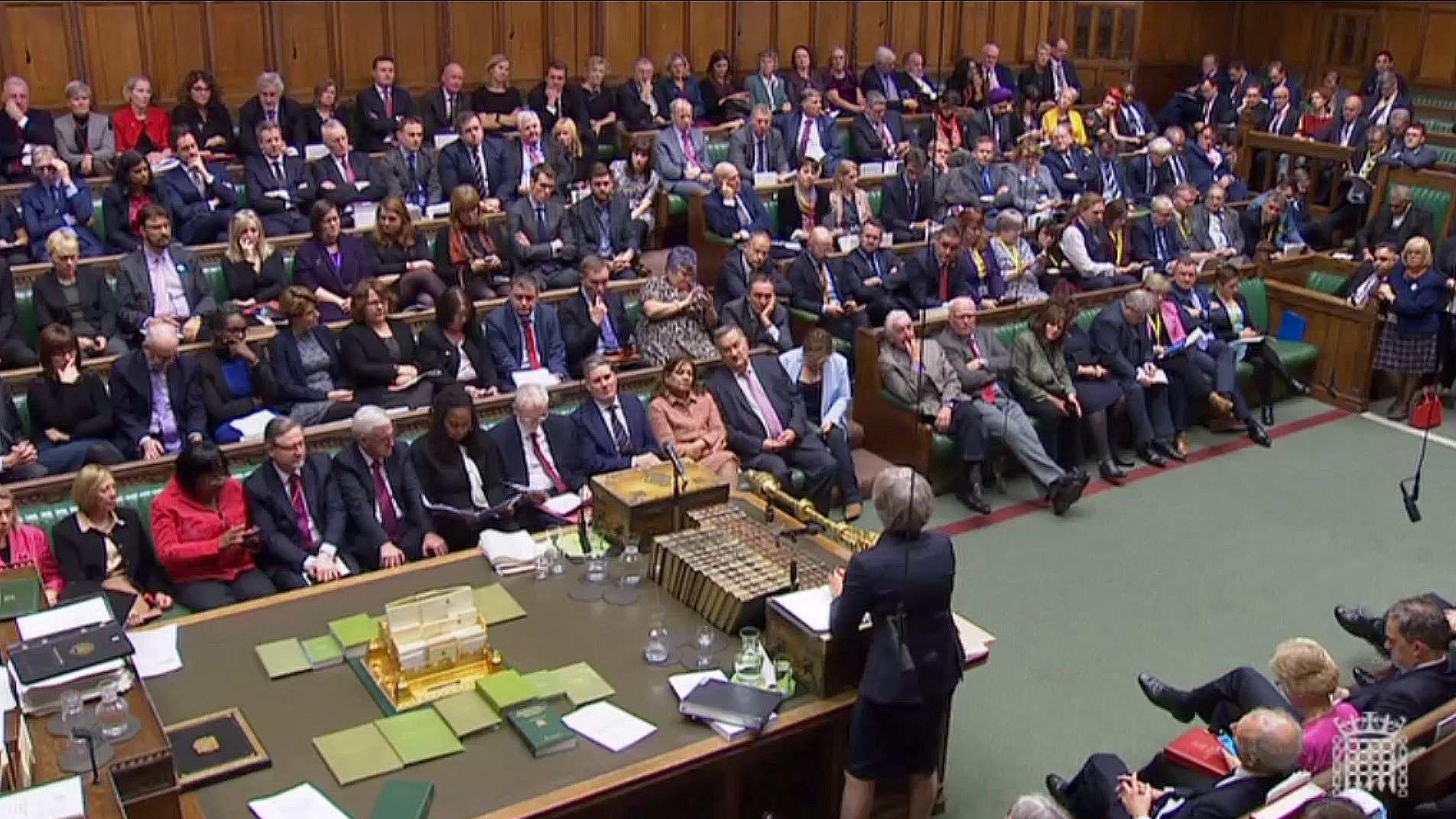
Politics
12:45, 05-Dec-2018
Treble defeat: May's power over Brexit curbed by big losses
Updated
12:16, 08-Dec-2018
By John Goodrich
02:05

The British government on Tuesday suffered three damaging losses that shift the balance of power away from Prime Minister Theresa May and towards MPs in determining how – and if – Britain leaves the European Union.
The defeats are further evidence that May's deal to pull the UK out of the EU is likely to be rejected when it is put to the House of Commons on December 11.
It was the first time a government had lost three votes in a single day for four decades, and featured rebellions by May's own MPs and the Democratic Unionist Party that props up her government.
Defeat 1: Brexit legal advice referral
The government's first loss was an attempt to avoid a vote on whether it was in contempt of parliament over its refusal to publish its full legal advice on the Brexit deal.
It lost by four votes on an attempt to refer the issue directly to a committee of MPs to consider.
Defeat 2: Government in contempt
The first defeat led to a humiliating second. The government was found in contempt of parliament – by 311 votes to 293 – for failing to produce the full legal advice on May's Brexit deal.
The House of Commons voted in November that all legal advice on Brexit should be published, but on Monday Attorney General Geoffrey Cox published only a summary. The government claims publishing the advice in full would be against the national interest; critics believe the advice contains details that would be the final nail in the coffin of May's deal.
The matter has not been resolved, and a government response is expected on Wednesday. Keir Starmer, Brexit spokesman for the opposition Labour Party, called the defeat a "badge of shame" for the government.
Defeat 3: MPs to have bigger Brexit say
The third, and potentially most consequential, defeat for the government was on the process that would follow a defeat of May's Brexit deal on December 11.
The House of Commons voted by 321 to 299 to give MPs a greater say in the 21-day period that would follow a defeat. This is hugely significant: it narrows the chances of a "no deal" Brexit and makes an alternative deal, a second referendum or stopping Brexit altogether more likely.
Government officials attempted to spin the vote as a potential positive, in that pro-Brexit MPs may be more inclined to back May's deal rather than risk the alternative.
Those opposed Brexit were also boosted on Tuesday by advice from a European Court of Justice advocate general that Britain had the right to withdraw from the Brexit process unilaterally.

British Prime Minister Theresa May speaks in the House of Commons in London at the beginning of a debate on the Brexit deal, December 4, 2018. /VCG Photo
British Prime Minister Theresa May speaks in the House of Commons in London at the beginning of a debate on the Brexit deal, December 4, 2018. /VCG Photo
May began five days of Brexit debate on Tuesday in the run-up to the critical vote scheduled for December 11.
With around 100 of her own MPs as well as her allies in the DUP and almost all opposition parties opposed to the deal, her chances of success are low.
The prime minister battled on despite the losses, telling parliament on Tuesday that her deal was the best available option. "I do not say that this deal is perfect – it was never going to be. We should not let the search for the perfect Brexit prevent a good Brexit that delivers for the British people."
Jeremy Corbyn, leader of the opposition Labour Party, said May needed to get a better deal or step aside.
The debates and final vote on December 11 will determine how, and even if, Britain leaves the EU as planned on March 29, 2019.

SITEMAP
Copyright © 2018 CGTN. Beijing ICP prepared NO.16065310-3
Copyright © 2018 CGTN. Beijing ICP prepared NO.16065310-3